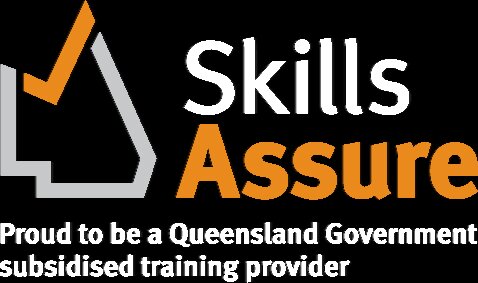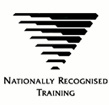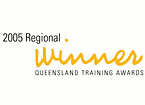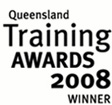If you are ‘actively working towards’ your approved Diploma level qualification, you may be counted as a Diploma level educator.
ACECQA
Childcare Certificate and Diploma courses for Educators wanting to gain their qualification
Extract from https://www.acecqa.gov.au/qualifications/qualification-requirements
DID YOU KNOW?
- If you are under 25 years of age, and your employer wants to put you on as an Apprentice, you can enrol as an apprentice even if already employed?
Childcare Apprenticeships and Traineeships
-
Educator in an early childhood education and care setting (Childcare)
-
Work, earn, and learn PLUS receive government entitlements of up to $5000 if you are employed full-time.
-
Under 25 years of age NO FEES....
Diploma level education and care qualifications
Under the National Quality Framework, a person is a Diploma qualified educator if they:
- hold an approved Diploma level qualification
- hold a former approved diploma level qualification completed before 1 January 2012.
The NQF introduced a new quality standard in 2012 to improve education and care across long day care, family day care, preschool/kindergarten, and outside school hours care services.
The NQF includes:
- National Law and National Regulations
- National Quality Standard
- assessment and quality rating process
- national learning frameworks.
Disability - NDIS
Disability Support Workers are you looking for an online course to seek recognition for your role and gain your qualification?
About the NDIS will help you understand key information about the NDIS including what it is, if you can access it, when it will be available, and why it’s important.
The National Disability Insurance Scheme (NDIS) is the new way of providing support for Australians with disability, their families and carers.
The NDIS gives all Australians peace of mind that if their child or loved one is born with or acquires a permanent and significant disability they will get the support they need.
The NDIS supports people with disability to build skills and capability so they can participate in the community and employment.
The NDIS helps people with disability to:
Access mainstream services and supports
These are the services available for all Australians from people like doctors or teachers through the health and education systems. It also covers areas like public housing and the justice and aged care systems.
Access community services and supports
These are activities and services available to everyone in a community, such as sports clubs, community groups, libraries or charities.
Maintain informal support arrangements
This is help people get from their family and friends. It is support people don’t pay for and is generally part of most people’s lives.
Receive reasonable and necessary funded supports
The NDIS can pay for supports that are reasonable and necessary. This means they are related to a person’s disability and are required for them to live an ordinary life and achieve their goals.
Assistance from the NDIS is not means tested and has no impact on income support such as the Disability Support Pension and Carers Allowance.
See the Our history page for more information about how the NDIS came about.
https://www.ndis.gov.au/about-us/what-ndis
Teacher-aide in QLD
Teacher-aides are you looking for an online course to seek recognition for your role and gain your qualification?
https://www.qld.gov.au/education/jobs/nonteach
Teacher aides
Teacher aides support teaching and learning in Queensland state schools and work closely with teachers to:
- develop and obtain resources
- set up and operate equipment
- complete administrative tasks
- supervise students
- participate in teacher activities under the direction of teachers.
Find out more about the role of teacher aides in state schools.
We are proud to be a Skills Assure provider!
The new skills Assure identifer makes it easier to recognise providers that offer training subsidised by the Queensland Government.
By choosing a subsidised course through a Skills Assure supplier, you can gain skills that are valued by industry and will help you get a job once your are finished your studies or you may employment upon enrolment. This is due to the mandatory practical component of the course where students seek a volunteer placement (if not already employed in the industry) which can lead to employment. For example; Early childhood education and care settings, (Childcare centres, Daycare centres, Early Learning centres) Disability support organisations and Schools seeking teacher-aides.
Allied Health Assistant
Below is an eztract from this website link. - https://au.indeed.com/career-advice/finding-a-job/what-is-an-allied-health-assistant
What is an allied health assistant?
The allied health sector covers assistants and professionals that are not doctors, nurses, dentists or midwives. There are various allied health professionals, most of whom require assistants. Allied health assistants help health professionals carry out their duties in the medical industry. The workplaces of an allied health assistant are typically rehabilitation centres, private medical centres and acute hospital wards.
Duties of an allied health assistant
The duties of allied health assistance can vary widely. An allied health assistant may have responsibilities ranging from monitoring a patient's health to providing administrative assistance to health professionals. As allied health assistants may work in various health sectors, their duties may differ slightly from one another.
Here is a list of the general duties required of an allied health assistant:
-
organising and filing patient reports
-
gathering patient history and medical documents
-
preparing medical equipment
-
providing clinical support to patients
-
monitoring patient health status
-
providing administrative support to health professionals
-
creating exercise programs
-
assisting clients with rehabilitation exercises
-
caring for patients' dietary needs and personal hygiene
-
helping health professionals perform their daily tasks.











